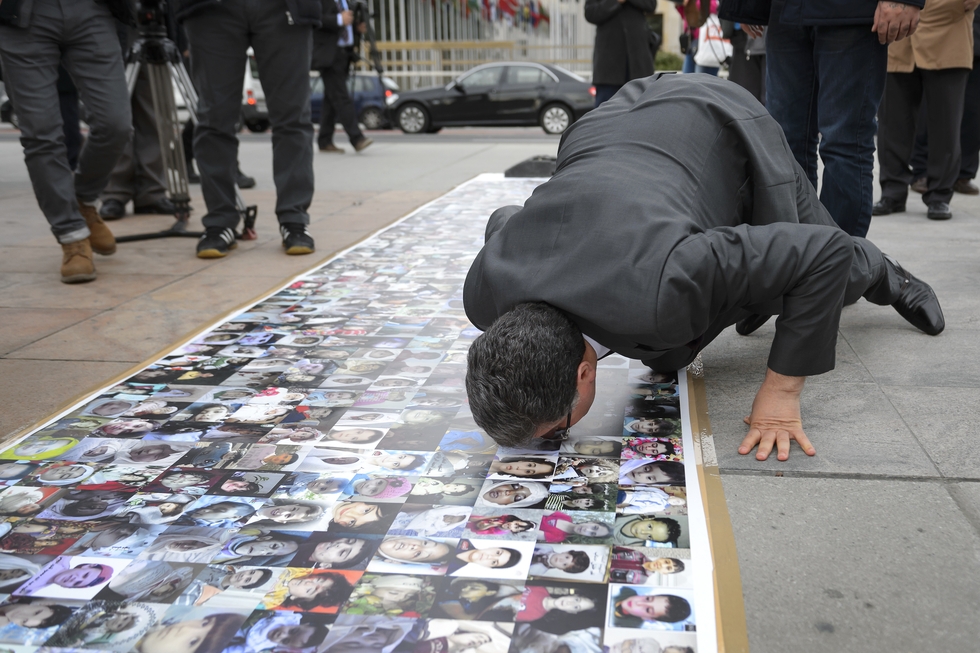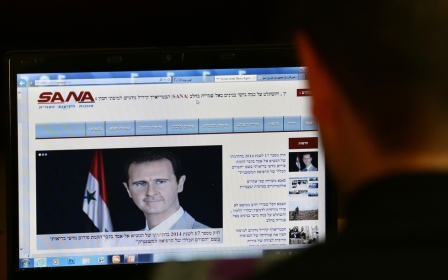Geneva III was built upon false premises from the start

Not surprisingly, Geneva III talks were suspended. The United States Secretary of State John Kerry put the onus for the suspension on the opposition's shoulders.
Kerry appears to believe that the Russian-regime military campaign that was ongoing during the short-lived talks and has only intensified since then, killing scores of people and driving tens of thousands out of their homes to seek refuge in Turkey, was a predictable outcome of this suspension that will "decimate" the opposition. If these statements aren't morally bankrupt, they are at best an attempt to evade the responsibility for the ongoing carnage in Syria.
Geneva III talks didn't fail to progress because of the opposition's intransigence. There were structural factors at play that hindered the talks from the start. Moreover, the run up to the talks has revealed the true nature of the Syrian crisis and the international community's response to it.
The main motivation behind Geneva III was to get a deal - irrespective of whether this deal was fair and sustainable. Hypothetically, major international and regional powers can exert pressure particularly on the opposition, which is the weaker side, to force them to accept a "political" deal.
This logic overlooks the fact that a political deal can only be sustainable if it is also sociologically supported. It is relatively easier to attain an elite level political deal. But it is much harder to acquire the sociological acceptance. The key to turn a political solution into a sociological one as well is legitimacy.
The extent of the legitimacy that the deal has in the eyes of the ordinary people will determine the sustainability of a political deal. Yhis is exactly where the international community, consciously or inadvertently, lost sight of the matter in the last theatre of Geneva talks.
By forcing the weaker side, the opposition, to give up on their preconditions and to lower their expectations, the international community thought that it could get a deal. However, this approach will actually have a reverse effect. This approach will rob the opposition of any legitimacy that they have in the eyes of their people, given that they will have failed to represent their people's aspirations and demands.
It is understandable as to why the regime would want to bring about such an eventuality. In the end, the Assad regime was never one that ruled by consent. Instead, it is a regime that rules by brute force. It strives to "tame" its people's political demands by increasing the level of tragedy and brutality that it inflicts on them.
The fact that the regime and Russia intensified its military campaigns while going to Geneva supposedly to seek a political solution, proves that they were trying to reduce the legitimacy of the opposition in the eyes of Syrian people by creating friction within the opposition block and to make it appear to have failed even to attain its minimal preconditions for talks. As such, with the military campaign, the regime essentially targets the legitimacy and uniformity of the opposition.
US seeks a settlement at any cost
This approach and mentality are the root causes of the Syrian crisis, hence should be rejected by the international community. Any lasting solution in Syria requires an opposition with a high level of legitimacy and a high degree of representative power. Hence, international community should strive to help the opposition to maintain its legitimacy and protect its unity. Only an opposition of that kind will have the power to cut a deal and execute it.
Since Geneva I, we have witnessed two trends. On the one hand, the distance between the major international stakeholders of the conflict, namely the United States and Russia, has shrunk. The United States has moved towards the Russian formula. It gives the impression that it prioritises the process over the result, and seeks a settlement at any cost. Russia, by contrast, has its own policies and priorities, and is willing to put resources and apply force to protect them. This partially accounts for the American move towards the Russian position.
On the other hand, the divergence between regional stakeholders - Iran, Hezbollah, Turkey, Saudi Arabia, and Qatar - in the conflict has widened. This makes this conflict extremely perilous. Pro-opposition regional parties, feeling that they have been left on their own, might choose to pursue a dangerous path. The US particularly needs to take heed of its allies' disillusionment and sense of frustration. Otherwise, this gulf between the regional countries on the settlement of the crisis will be a major impediment against bringing the talks to fruition.
Another major impediment in this process is the gap in the political psychologies of the regime and opposition. Pressured and threatened by its regional and international supporters to attend the conference, and squeezed and bombed by the Russians and regime on the ground, the opposition went to Geneva with a significantly weakened political psychology. On the other hand, buttressed by the Iranian/Hezbollah/Russian military campaign, and granted further international legitimacy, the regime went to the talks in an upbeat mood.
This gulf in their respective political psychologies reduces the regime's appetite for any concessions and the opposition's belief in any political settlement. This needs to be addressed as any political process should start with establishing some kind of balance in political psychology. This requires a firm position on the part of the opposition's regional and international supporters in aiding the opposition by pressuring the regime and Russia to halt the military assaults while the talks are scheduled and ongoing.
Thus, Geneva III talks failed not because its attendees, particularly the opposition, wanted it to fail, but because it was built on erroneous premises and flawed assumptions.
- Galip Dalay works as a research director at al-Sharq Forum and senior associate fellow on Turkey and Kurdish Affairs at the Al Jazeera Centre for Studies.
The views expressed in this article belong to the author and do not necessarily reflect the editorial policy of Middle East Eye.
Photo: High Negotiations Committee (HNC) and Syrian opposition spokesman Salem al-Meslet kisses a banner showing pictures of children killed during the Syrian war at the Places des Nations outside of the United Nations Offices on 2 February, 2016 in Geneva (AFP).
Stay informed with MEE's newsletters
Sign up to get the latest alerts, insights and analysis, starting with Turkey Unpacked
Middle East Eye delivers independent and unrivalled coverage and analysis of the Middle East, North Africa and beyond. To learn more about republishing this content and the associated fees, please fill out this form. More about MEE can be found here.





